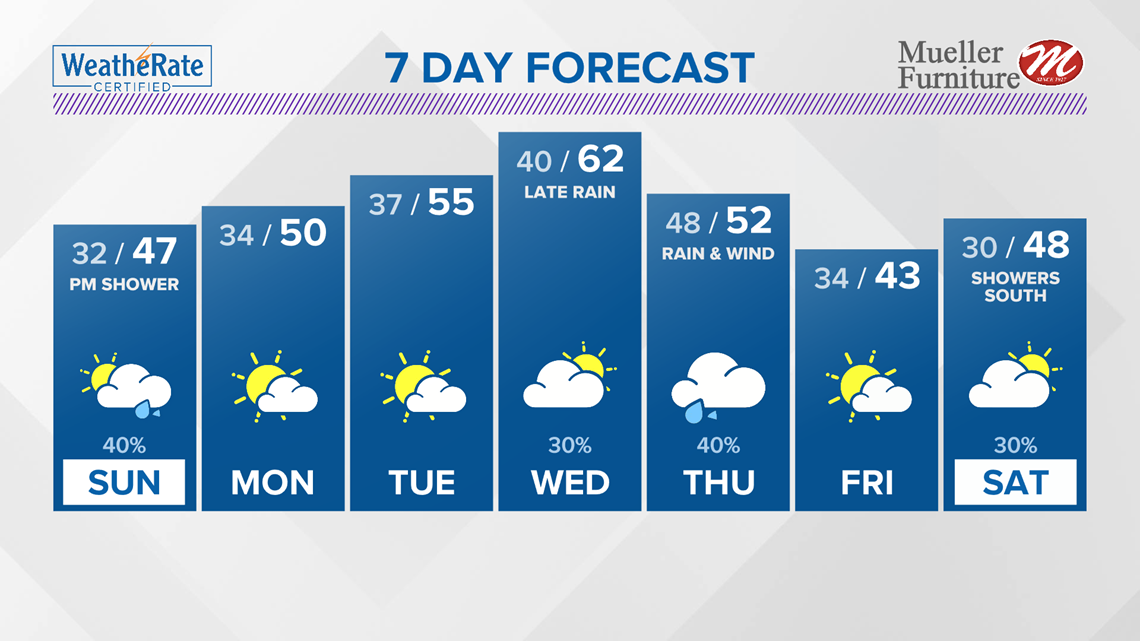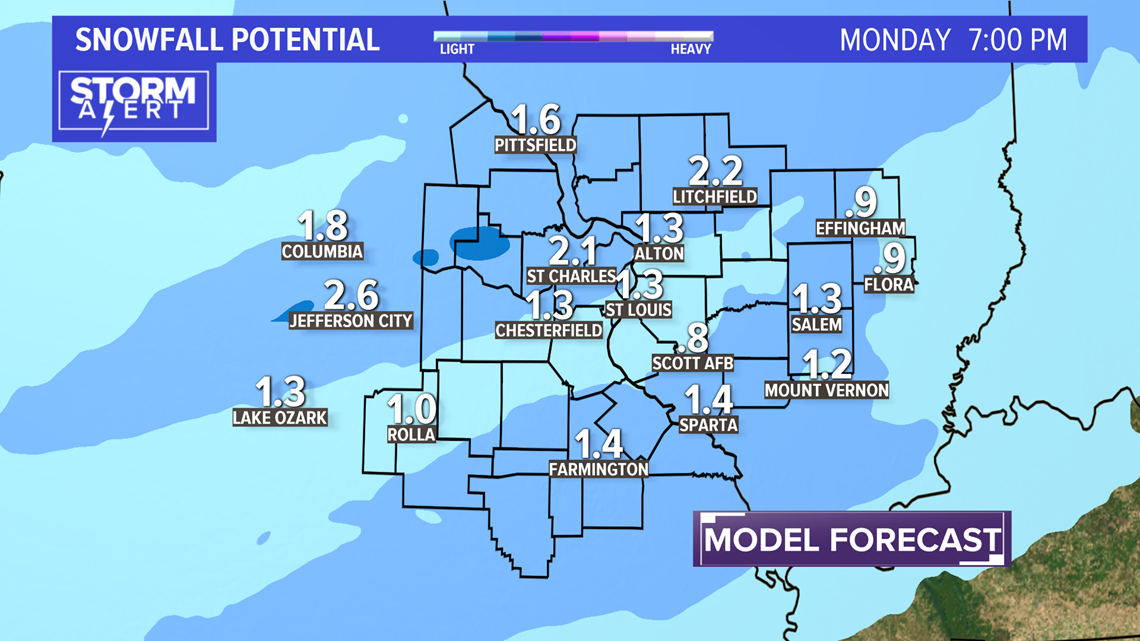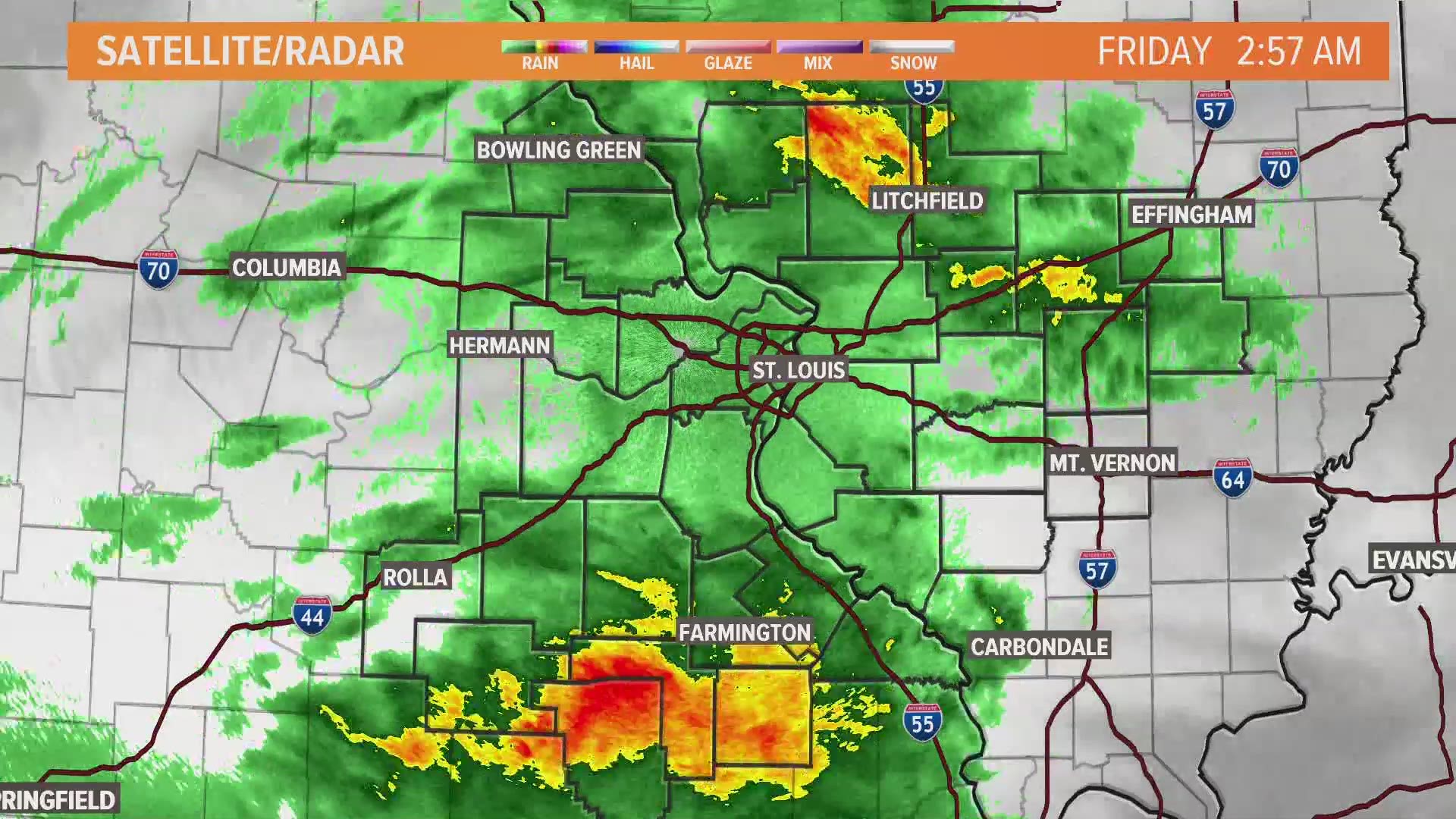10-Day St Louis MO Weather Forecast: Your Ultimate Guide
St Louis MO weather forecast 10-day predictions are essential for anyone planning outdoor activities, travel, or simply preparing for the week ahead. Whether you're a local or a visitor, understanding the weather trends in this vibrant city can help you make informed decisions about your schedule and wardrobe. The weather in St. Louis can be unpredictable, so staying updated with a reliable 10-day forecast is crucial.
The city of St. Louis, located in Missouri, experiences diverse weather patterns throughout the year. From scorching summers to chilly winters, the climate here is nothing short of dynamic. This article aims to provide a comprehensive guide to understanding and utilizing the 10-day weather forecast for St. Louis, ensuring you're always prepared for what nature has in store.
By the end of this article, you'll have a clear understanding of how to interpret weather forecasts, the tools available for accurate predictions, and how to stay safe and comfortable regardless of the weather. Let's dive into the details of St. Louis' weather forecast and equip you with the knowledge you need to thrive in this ever-changing climate.
Read also:Ellen Corby Actress A Comprehensive Look At Her Life Career And Legacy
Understanding St Louis MO Weather Patterns
Seasonal Variations in St. Louis
St. Louis experiences four distinct seasons, each with its own unique weather characteristics. The spring season, from March to May, brings moderate temperatures and occasional rainfall. Summers, lasting from June to August, are typically hot and humid, with temperatures often exceeding 90°F (32°C). Fall, from September to November, offers cooler temperatures and vibrant foliage, while winters, from December to February, can be cold and snowy, with temperatures sometimes dropping below freezing.
Key Climate Factors Affecting St. Louis
Several factors influence St. Louis' weather patterns, including its location in the Midwest and proximity to major rivers like the Mississippi and Missouri. These geographical features contribute to the city's humid continental climate, characterized by significant seasonal temperature variations. Understanding these factors can help you better anticipate weather changes and prepare accordingly.
Why 10-Day Weather Forecasts Are Important
Planning for the Long Term
A 10-day weather forecast provides a comprehensive outlook on upcoming weather conditions, allowing you to plan ahead with confidence. Whether you're organizing a family picnic, scheduling a business trip, or preparing for potential severe weather, this extended forecast is an invaluable resource. It offers a glimpse into temperature trends, precipitation probabilities, and potential storm systems, ensuring you're always one step ahead.
Reliability of 10-Day Forecasts
While 10-day forecasts may not be 100% accurate, advancements in meteorological technology have significantly improved their reliability. Modern forecasting models utilize satellite data, computer simulations, and historical weather patterns to deliver increasingly precise predictions. However, it's important to remember that weather is inherently unpredictable, and forecasts should be checked regularly for updates.
Tools and Resources for St Louis MO Weather Forecast
Top Weather Websites and Apps
Several reputable platforms offer reliable St Louis MO weather forecast 10-day predictions. Websites like the National Weather Service, Weather.com, and The Weather Channel app provide detailed forecasts, radar maps, and alerts for severe weather. These tools are essential for staying informed about current and upcoming weather conditions in St. Louis.
- National Weather Service: Official government resource for accurate weather data.
- Weather.com: Comprehensive forecasts with interactive maps and detailed analytics.
- The Weather Channel App: User-friendly interface with real-time updates and notifications.
Interpreting the 10-Day Forecast
Understanding Key Forecast Elements
When reviewing a 10-day forecast, pay attention to key elements such as high and low temperatures, precipitation probabilities, wind speeds, and humidity levels. These factors can significantly impact your daily activities and comfort. Learning how to interpret these elements will enhance your ability to make informed decisions based on the weather outlook.
Read also:Eva Longoria Husband A Comprehensive Look At Her Marital Journey
Recognizing Weather Patterns
St. Louis' weather is influenced by large-scale weather systems, such as cold fronts, warm fronts, and low-pressure systems. Recognizing these patterns can help you anticipate changes in temperature, precipitation, and wind conditions. For example, a cold front moving through the area may bring cooler temperatures and rain, while a warm front could result in milder weather and increased humidity.
Preparing for St Louis Weather
Seasonal Clothing Tips
Dressing appropriately for St. Louis' weather requires an understanding of the season and expected conditions. During summer, lightweight, breathable fabrics are ideal for combating the heat and humidity. In winter, layering with warm, waterproof clothing is essential for staying comfortable in cold and potentially snowy conditions. Always check the 10-day forecast to ensure you're prepared for any weather surprises.
Emergency Preparedness
Severe weather, such as thunderstorms, tornadoes, and winter storms, can occur in St. Louis. It's crucial to have an emergency preparedness plan in place, including a stocked emergency kit, communication plan, and awareness of local emergency alerts. Staying informed through reliable weather forecasts is a key component of ensuring your safety during extreme weather events.
Historical Weather Trends in St Louis
Average Temperature and Precipitation
Historical weather data for St. Louis reveals distinct trends in temperature and precipitation throughout the year. On average, the city experiences temperatures ranging from 32°F (0°C) in January to 89°F (32°C) in July. Annual precipitation totals approximately 37 inches, with the wettest months being April and May. Understanding these averages can help you better anticipate weather conditions and plan accordingly.
Extreme Weather Events
St. Louis has experienced several notable extreme weather events, including tornado outbreaks, floods, and severe winter storms. For example, the city was hit by a devastating tornado in 2011, causing significant damage and highlighting the importance of preparedness. By studying historical weather data, you can gain insights into the frequency and severity of extreme weather events in the area.
Technological Advancements in Weather Forecasting
Modern Forecasting Techniques
Advancements in technology have revolutionized weather forecasting, enabling more accurate and detailed predictions. Modern forecasting techniques include the use of satellite imagery, Doppler radar, and sophisticated computer models. These tools allow meteorologists to analyze atmospheric conditions in real-time and provide timely updates to the public.
Impact on St Louis Weather Forecasts
In St. Louis, these technological advancements have led to more reliable and precise weather forecasts. Residents can now access detailed 10-day forecasts, severe weather alerts, and interactive radar maps, empowering them to make informed decisions about their daily lives. Continued investment in meteorological technology ensures that weather forecasting will only become more accurate in the future.
Community Engagement and Weather Awareness
Local Weather Initiatives
St. Louis has several community-driven initiatives aimed at promoting weather awareness and preparedness. Local organizations, schools, and government agencies collaborate to educate residents about weather safety and emergency preparedness. These initiatives often include workshops, seminars, and public awareness campaigns, fostering a culture of resilience in the face of changing weather patterns.
Staying Informed Through Social Media
Social media platforms have become valuable tools for disseminating weather information in St. Louis. Local meteorologists, news outlets, and emergency management agencies frequently post updates, alerts, and forecasts on platforms like Twitter and Facebook. Following these accounts can ensure you receive timely and accurate weather information, helping you stay safe and informed.
Conclusion: Staying Ahead of St Louis MO Weather
In conclusion, understanding and utilizing the 10-day St Louis MO weather forecast is essential for anyone living in or visiting this dynamic city. By staying informed about weather patterns, utilizing reliable forecasting tools, and preparing for potential weather challenges, you can ensure your safety and comfort throughout the year. Remember to check the forecast regularly, especially during times of expected severe weather, and take appropriate precautions to protect yourself and your loved ones.
We invite you to share your thoughts and experiences with St. Louis weather in the comments below. Your feedback helps us improve and provide even more valuable content. Don't forget to explore our other articles for additional tips and insights on weather preparedness and beyond. Together, we can build a more weather-resilient community in St. Louis.
Table of Contents
- Understanding St Louis MO Weather Patterns
- Seasonal Variations in St. Louis
- Key Climate Factors Affecting St. Louis
- Why 10-Day Weather Forecasts Are Important
- Planning for the Long Term
- Reliability of 10-Day Forecasts
- Tools and Resources for St Louis MO Weather Forecast
- Top Weather Websites and Apps
- Interpreting the 10-Day Forecast
- Understanding Key Forecast Elements
- Recognizing Weather Patterns
- Preparing for St Louis Weather
- Seasonal Clothing Tips
- Emergency Preparedness
- Historical Weather Trends in St Louis
- Average Temperature and Precipitation
- Extreme Weather Events
- Technological Advancements in Weather Forecasting
- Modern Forecasting Techniques
- Impact on St Louis Weather Forecasts
- Community Engagement and Weather Awareness
- Local Weather Initiatives
- Staying Informed Through Social Media


